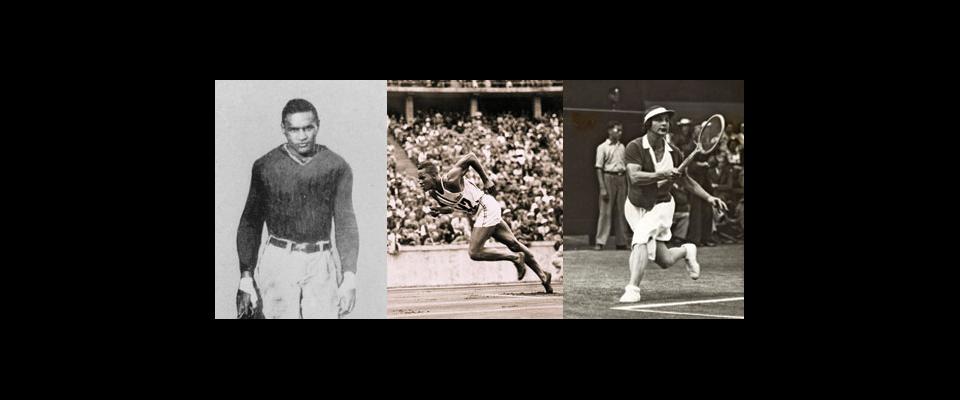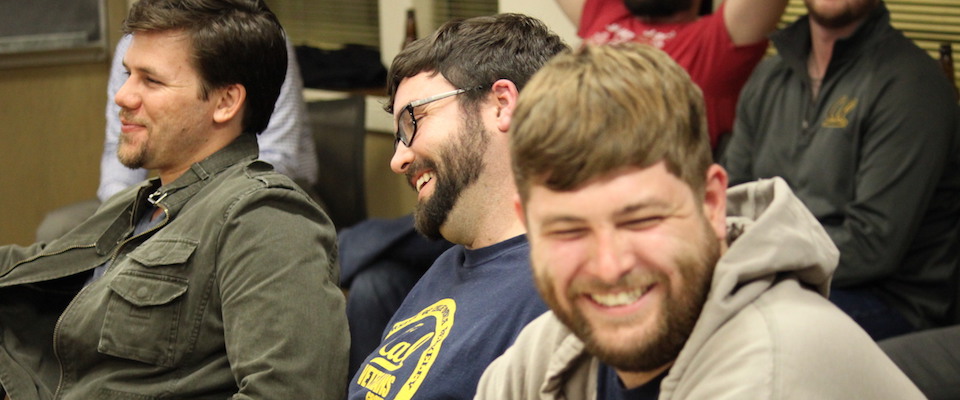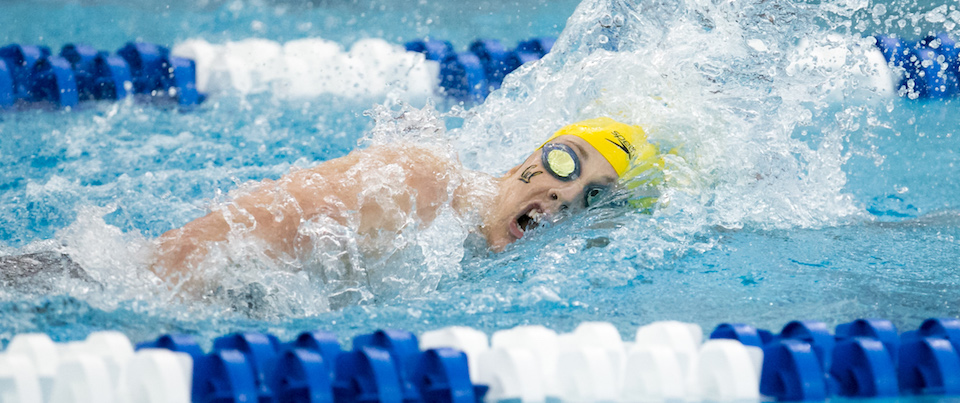Archie Williams ’39
Archie Williams, an athlete, airman, and teacher who ran in the infamous 1936 Olympics in Berlin, graduated from Cal with a bachelor’s degree in mechanical engineering at a time when no one in the field was hiring African-Americans.
A native of Oakland, Williams was a track star at University High School and the College of San Mateo before coming to Cal. Once he became a Golden Bear, he broke the world record for the 400-meter sprint at the NCAA championship. In Berlin, he won gold in the same event, edging out British competitor Arthur Godfrey Brown.
Williams, along with fellow gold medalist Jessie Owens, stunned German Chancellor Adolf Hitler and returned to the United States as heroes. Ironically, Williams said he experienced more discrimination at home than in Nazi Germany, where he was allowed full access to restaurants, bars, and buses.
After graduating in 1939, Williams tried to put his engineering degree to use, but, finding no market for black engineers, ended up digging ditches for a time before pursing his pilot’s license. In 1942 he joined the Army Air Corps and became an instructor to the famed Tuskegee Airmen. Williams retired from the Army Air Corps after 22 years, then taught public high school in Northern California until 1986.
He died in Fairfax in 1993 at the age of 78.
Walter Gordon ’18, J.D. ’22
Walter Gordon’s life was a long string of firsts. He was the first man in his family to go to college (his father had only a second-grade education), the first African-American to play football at the University of California, and in 1918 the first West Coast player to be named All-American. After graduating, Gordon went on to become Berkeley’s first African-American police officer and the first African-American to complete his law degree at Boalt, in 1922.
Subsequent résumé items included President of the Alameda County NAACP, Chairman of the California Adult Authority (now known as the Department of Corrections), and Governor of the Virgin Islands. And for 24 years, Gordon maintained a close association with Cal football, serving as a scout and assistant to four different coaches.
In an oral history at the Bancroft Library, recorded later in his life, Gordon, who attended segregated schools in Georgia as a child, discussed his choice to attend Berkeley rather than a Negro college. “I think Booker T. Washington did a magnificent job,” he told the interviewer. “But as far as his ideas on race relations as such—saying the races should be as separate as the fingers—that, to me, is not the way I like to live.”
Helen Wills ’26
By age 20, Helen Wills had already established herself as one of the world’s outstanding athletes, having won three U.S. singles titles and two Olympic medals. The summer after her graduation from Berkeley, where she studied art and excelled as a student, her lovely face graced the cover of Time, as it would again three years later.
Few players have dominated the game of tennis like Wills did. From 1927 to 1933 she never lost a set, amassing a 180-game winning streak. By the time she retired from the game, at age 33, she had won eight Wimbledons, seven U.S. championships, and four French Open titles.
Some fans perceived Wills as cold and distant. A fellow player called her the Garbo of the tennis circuit and the sportswriter Grantland Rice nicknamed her “Little Miss Poker Face” for the stolid expression she wore on the court. For her part, Wills said, “I had one thought and that was to put the ball across the net. I was simply myself, too deeply concentrated on the game for any extraneous thought.”
Upon her death in 1998, at age 92, Wills bequeathed $10 million to the Berkeley neuroscience center that now bears her name.




















